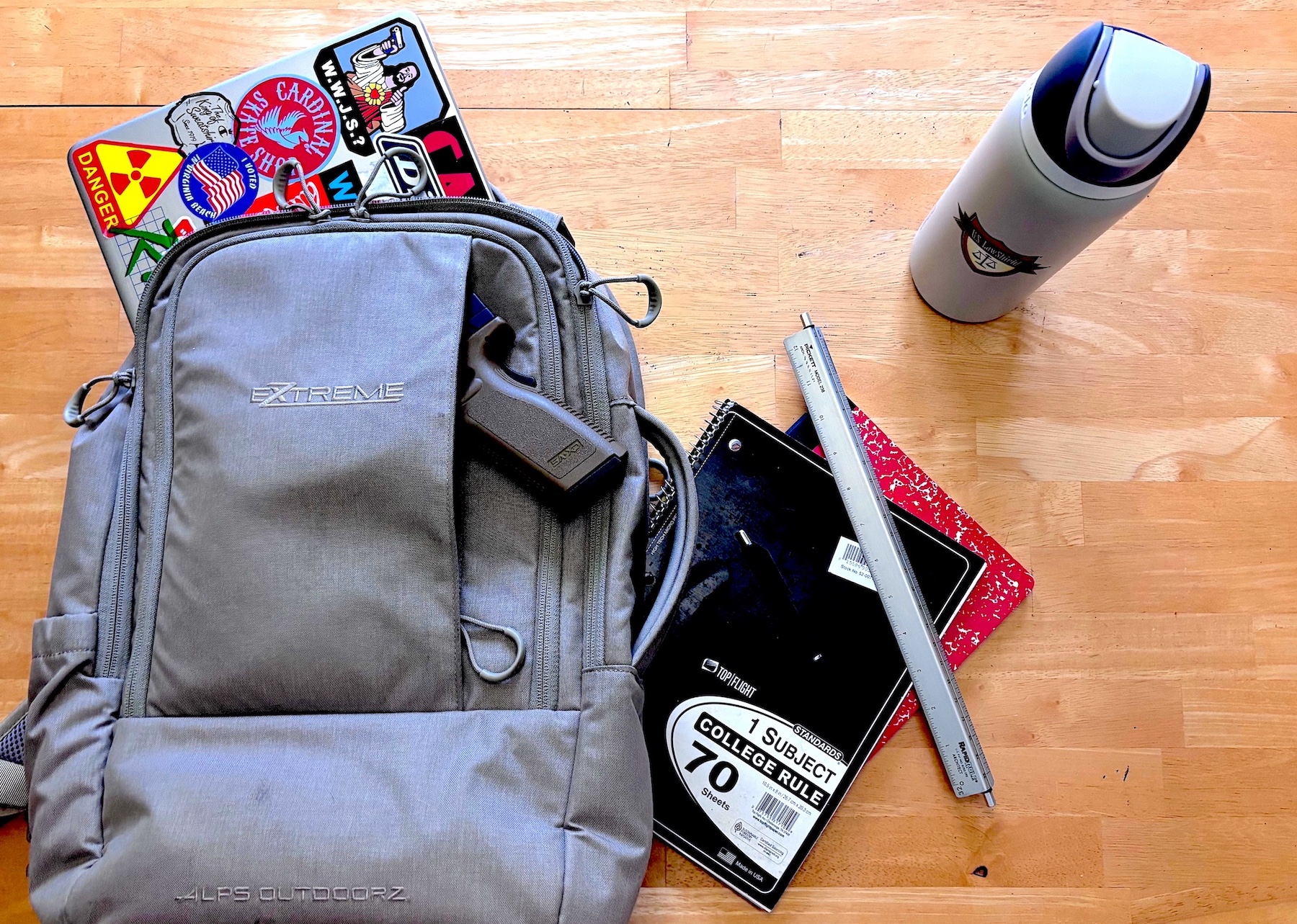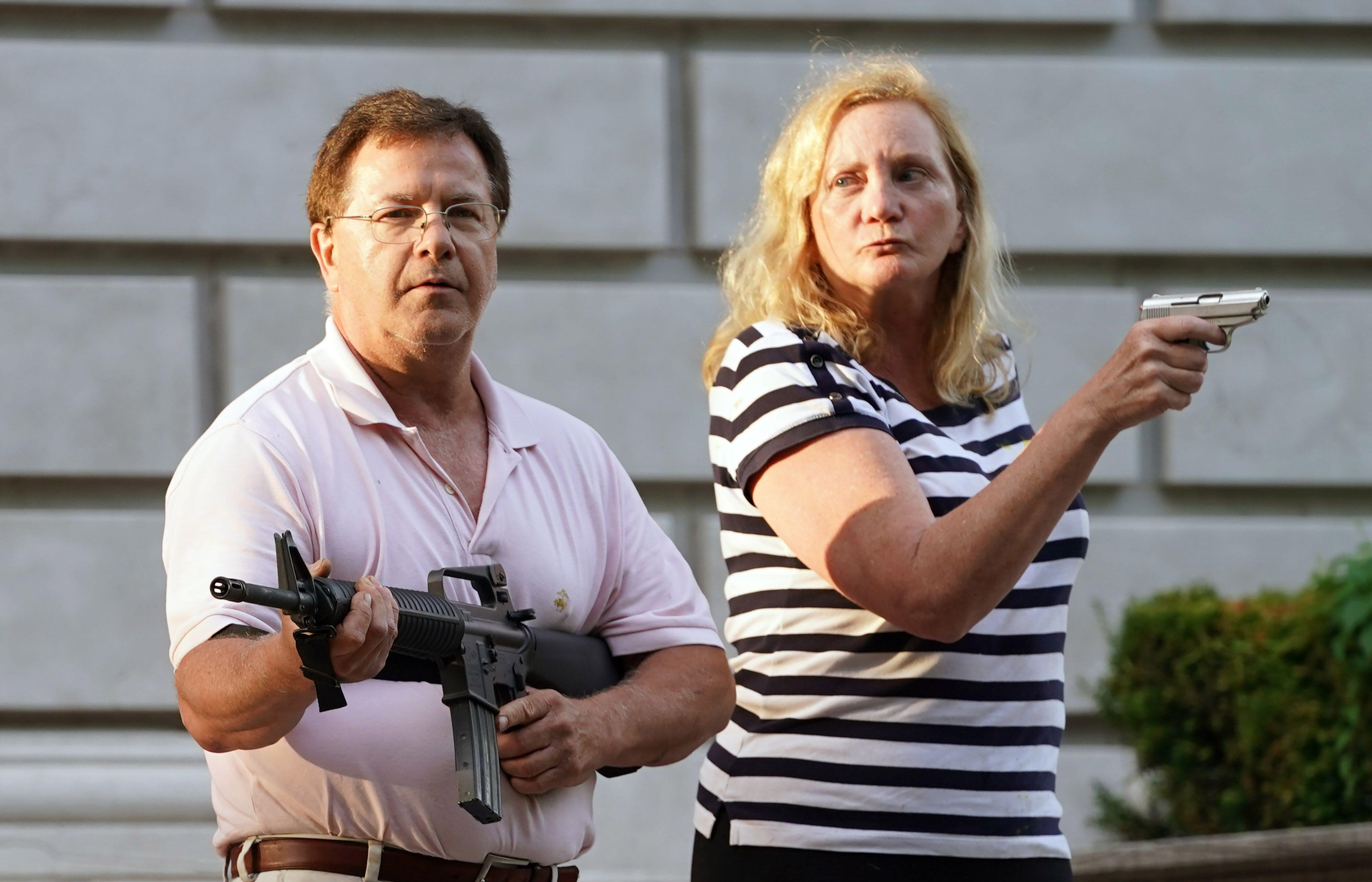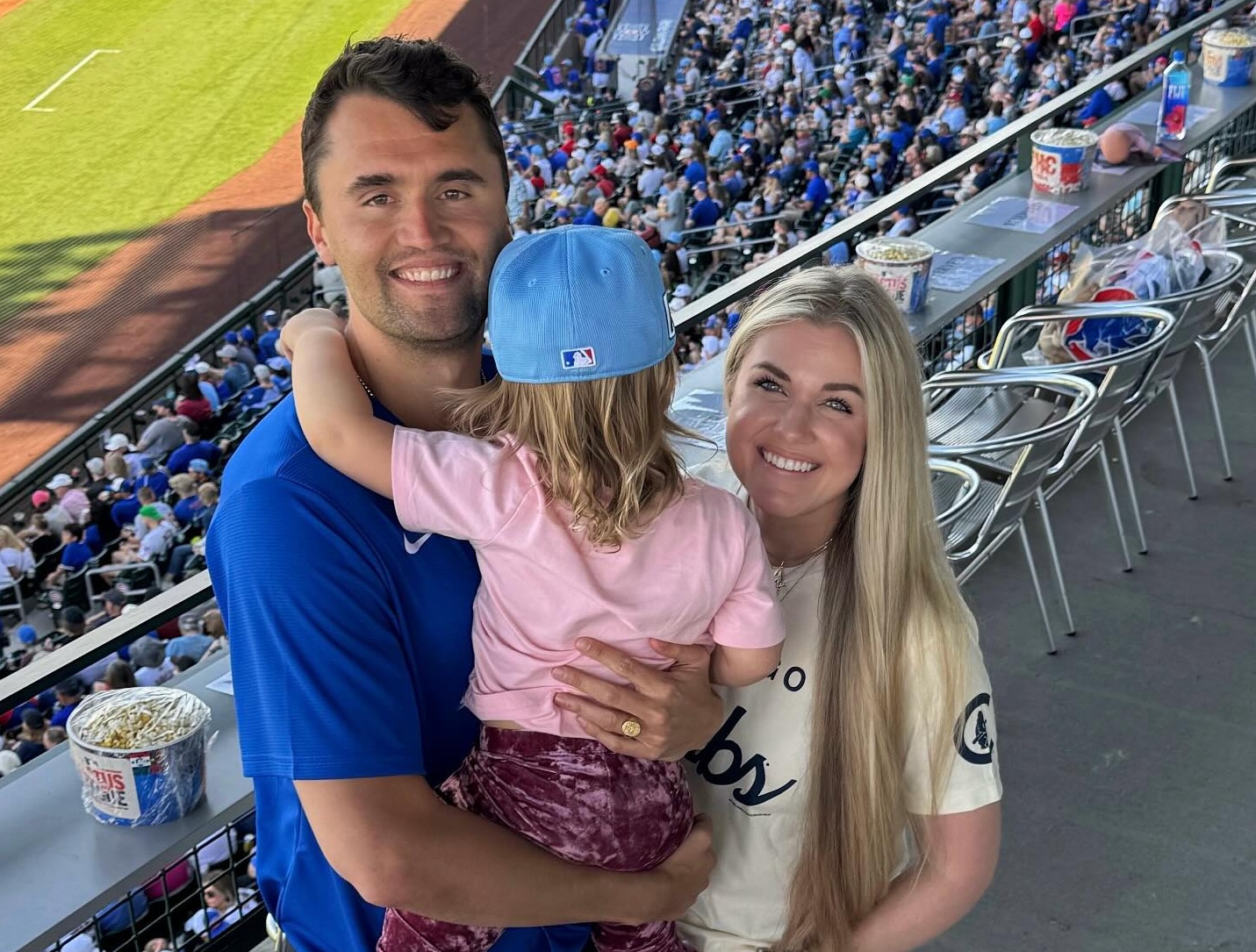
The sky was clear and bright as the crowd gathered to catch a glimpse of the man they’d come to see.
The air bristled with energy as the audience pushed forward, cameras rolling, capturing every word, every moment of the event. Then they captured something nobody could have imagined: the unmistakable crack of gunfire.The man tumbled backwards as panic swept through the crowd. Some people ran, others dropped to the ground. Screams filled the air. His security detail rushed to the man’s side to carry him to safety, but it was too late. America had just lost another powerful voice to political violence.
The assassination of Charlie Kirk on Sept. 10, eerily echoes another national tragedy caught on tape more than 50 years earlier when on Nov. 23, 1963, President John F. Kennedy was shot in Dallas.
Different men, different politics to be sure, but Kirk’s murder carries the same sickening chill as Kennedy’s; the same nightmare on video for everyone to relive over and over.
Why does Kirk’s death hit so hard? Because he was a national figure with a strong following, and because we all saw it unfold in real time. But it’s not an isolated act. In just the past year, we’ve witnessed the killing of Minnesota Rep. Susan Hortman and her husband, the shooting of Minnesota Sen. John Hoffman and his wife by the same man, and multiple attempts on Donald Trump’s life.
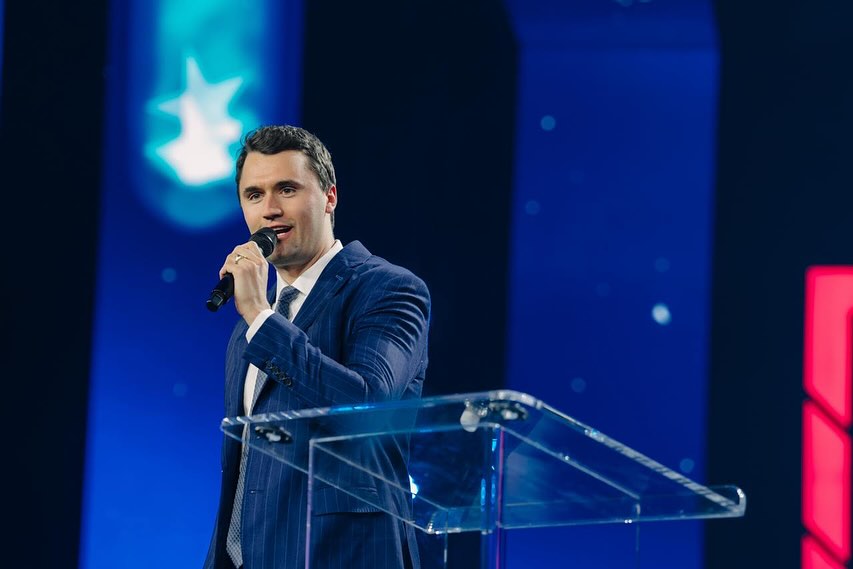
Charlie Kirk started Turning Point USA when he was only 18. (Photo courtesy TPUSA)
Sadly, we’ve been here before.
In the 1960s, America endured an unthinkable wave of high-profile assassinations—Kennedy, his brother Robert Kennedy, Martin Luther King Jr., Malcolm X. The losses reshaped politics and policy in ways still felt today, including the Gun Control Act of 1968, aspects of which remain fiercely debated.
Yet America endured.
A century before that, our country was so divided it erupted into four years of civil war. More than 750,000 Americans lost their lives.
Yet America endured.
The early 1900s brought more violence. President William McKinley was assassinated in 1901. In 1912, President Theodore Roosevelt was shot in the chest but survived thanks to a folded 50-page speech in his jacket—he delivered the speech while bleeding. Two years later, Archduke Franz Ferdinand of Austria and his wife were assassinated, sparking World War I (and ultimately the involvement of the United States) and the deaths of more than 16.5 million people.
Somehow, the world endured.
So, here we are again. A pivotal moment in which another voice has been silenced, a wife left without a husband, children without a father, a movement without its leader and a country—even among many who did not agree with Kirk—heartbroken and angry, because this is not who we are. It certainly isn’t who we should aspire to be.
History reminds us of the suffering we’ve withstood as a nation. The question now is how do we move on from this particular tragedy without widening the already mammoth political divide or sliding deeper into anger, hate and violence? How do we build something better?
The shock of the moment hadn’t even worn off when already there were calls from both left and right for laws restricting speech, limiting gun ownership, punishing people without due process or locking up the mentally ill. But we have to be careful. Giving away our rights in moments of fear has never made us safer. It has only made us less free.
Rights endure only when paired with responsibility. This is something law-abiding gun owners know all too well as we must learn the proper use and safety of firearms, keep them secure, get educated on laws and for many, carry them for defense of family and community, not for destruction, hoping we never have to use them for that purpose. That same ethic of responsibility must guide how we all speak and act now. We need restraint, not bluster. Rather than focusing on differences, maybe we should emphasize and celebrate the things we share in common.
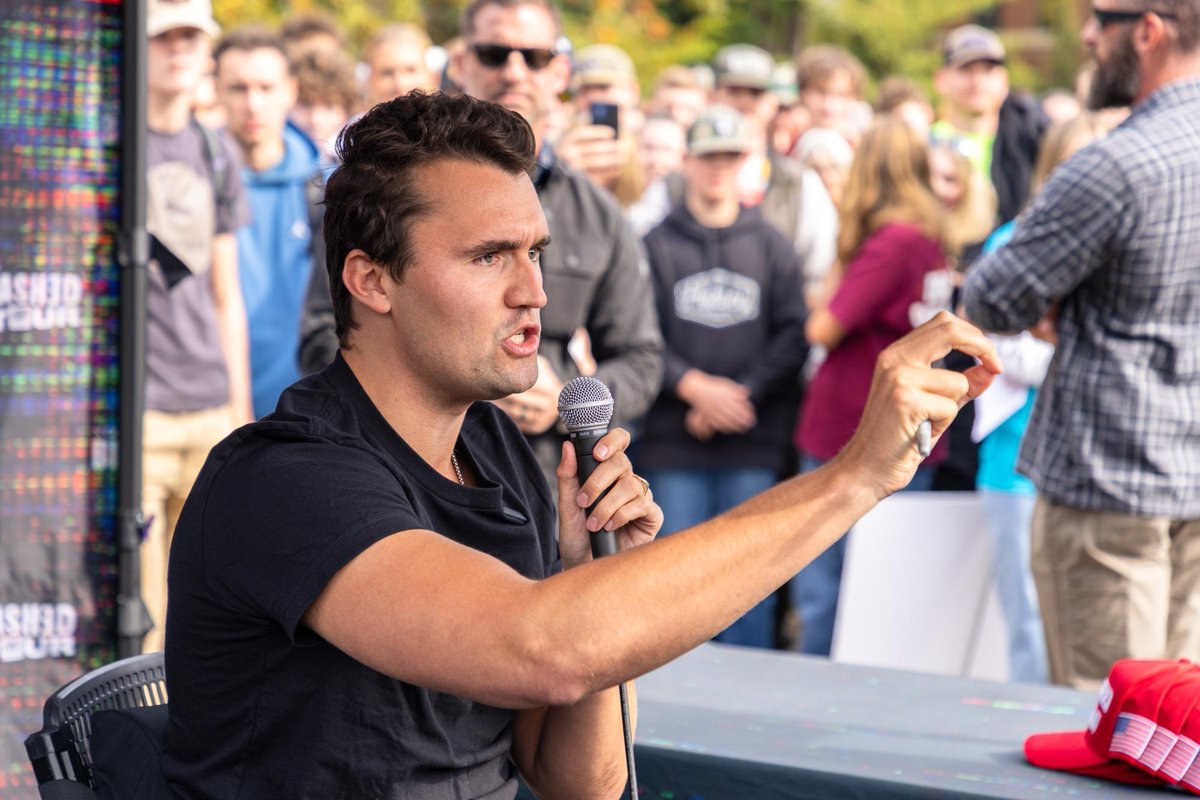
Charlie Kirk developed a strong following by debating students with opposing views on college campuses and sharing the debates on social media. (Photo courtesy TPUSA)
Here’s a radical idea from the Charlie Kirk playbook: put down our phones, step away from social media, and start talking to each other again. Spend time with family. Visit friends. Say hello to neighbors and the people we pass in the store. Maybe even take it further by practicing one of the FISH Philosophy’s core principlescalled Make Their Day—showing kindness and appreciation that creates meaningful connections and lasting bonds among customers, or in this case, the people around us. At the very least maybe we can just cut each other a break.
Would that really be so hard? Consideration costs nothing, and it’s one thing every one of us has the power to give.
At the most powerful moment of Kirk’s memorial, Erika Kirk forgave her husband’s killer. “The answer to hate is not hate,” she said. “The answer…is love and always love.” If a grieving widow can summon that courage in front of the entire world, surely the least we can do is dial the anger back in our discourse and be clear that violence has no place in our communities.
That’s at least a start. Maybe that’s how America will endure this most recent tragedy.


